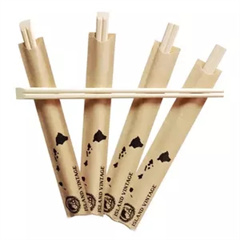Introduction: Chopsticks have been an integral part of Asian dining culture for centuries. As the world embraces sustainability, bamboo chopsticks have gained popularity as an eco-friendly alternative to disposable wooden and plastic chopsticks. In this blog post, we explore the cultural significance and sustainable attributes of bamboo chopsticks.
- Cultural Heritage: Chopsticks hold deep cultural significance in Asian countries like China, Japan, Korea, and Vietnam. They symbolize unity, respect, and the sharing of meals among family and friends. Bamboo chopsticks, with their natural beauty and simplicity, carry forward this cherished cultural heritage.
- Eco-Friendly Material: Bamboo is a sustainable and renewable resource, making it an eco-friendly choice for chopsticks. Unlike disposable wooden and plastic chopsticks that contribute to deforestation and plastic waste, bamboo chopsticks have a lower environmental impact.
- Biodegradable and Compostable: Bamboo chopsticks are biodegradable and compostable. After their useful life, they can be returned to the earth, leaving no lasting impact on the environment. This closed-loop cycle supports eco-conscious dining practices.
- Durable and Reusable: Bamboo chopsticks are durable and can withstand repeated use. They are easy to clean and maintain, making them a long-lasting alternative to single-use chopsticks.
- Enhancing Dining Experience: Bamboo chopsticks add an authentic touch to Asian dining experiences. Their smooth texture and comfortable grip enhance the enjoyment of meals while preserving cultural traditions.
- Supporting Sustainable Brands: Choosing bamboo chopsticks encourages the growth of sustainable brands committed to responsible sourcing and eco-friendly practices. By supporting these brands, consumers contribute to a greener and more sustainable future.
Conclusion: Bamboo chopsticks combine cultural heritage with sustainability, making them an ideal choice for eco-conscious diners. By embracing bamboo chopsticks, we honor Asian traditions, reduce plastic waste, and foster a greater appreciation for sustainable dining practices.



















